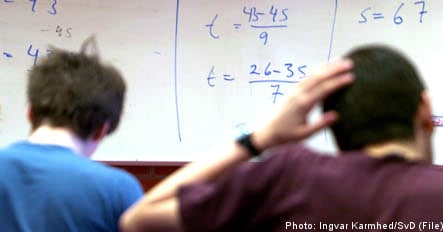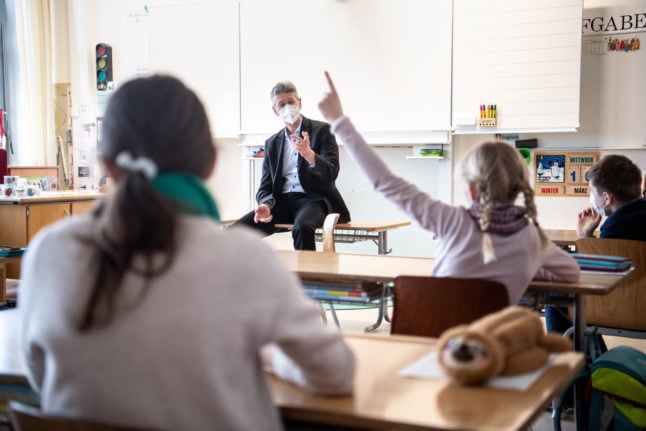Mathematics has once again proved to be the major stumbling block, with In 8.5 percent of pupils unable able to achieve a passing grade in the subject, although a higher proportion of those that did pass achieved distinctions.
The new statistics show minor changes on the corresponding figures for 2008 with 88.8 percent of school pupils achieving the passing grades required for high school (gymnasium) entry in the core subjects of Maths, Swedish and English.
“The figure, over 11 percent, would appear high but has largely remained the same for the past decade,” Helena Svensson at the board told The Local on Wednesday.
“Over the longer term there has been some decline. Before it was little under ten percent, now it is a little over.”
In English 7.1 percent of pupils did not make the grade while in Swedish the figure was 4.1 percent. In Swedish as a second language the figure was 27.5 percent.
The new report is based on preliminary statistics compiled from estimates produced by Statistics Sweden (SCB). Final grades will be published in November.
The board writes that the national statistics hide significant variations between and among school and local municipalities.
“Schools and municipalities are supposed to ensure that pupils are given the support that they need. They get this support, but may be it is not always the right kind of support,” Helena Svensson explained.



 Please whitelist us to continue reading.
Please whitelist us to continue reading.
Member comments